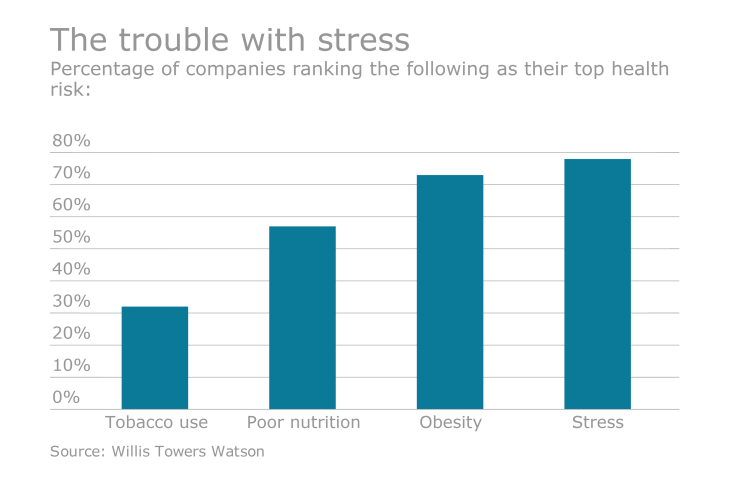One topic that is finally earning some well-deserved attention these days is how companies can improve the care their employees receive for mental health issues.
Mental health issues are more prevalent in the overall population than many people realize —both serious episodes as well as chronic issues. In 2014, for example, 6.7% of American adults experienced a major depressive episode (one lasting two weeks or more), according to the National Institute of Health.

For many more people, the enemy is stress. Whether caused by a lack of work/life balance, conflicts with colleagues, or personal issues outside the workplace, stress takes an often unseen mental and physical toll on people. It can lead to depression, insomnia and anxiety, among other conditions, which in turn can affect not just an individual’s job performance and absenteeism, but can also manifest in strained working relationships with colleagues.
See also: “
One of the challenges in dealing with problems caused by stress is that many employees may not realize help is available or that they even need it. While they may occasionally have trouble sleeping or experience shortness of breath, they may not have considered that stress and anxiety could be the root cause. Or if they are aware, they may opt not to seek help because of the stigma that has been associated with mental health issues.
Even though depression has been discussed far more openly in the past few decades, mental health concerns remain a taboo subject for most at work. People who wouldn’t hesitate to tell their manager about a problem with their physical health are embarrassed to do the same about their mental health. They may be concerned that even suggesting they suffer from depression or anxiety could adversely affect their job or career.
Companies often see their employee assistance program benefit as the first-line resource for access to mental health services. Unfortunately, we’ve found in our practice that if patients are unaware of the link between their health issues and mental health, they are also very unlikely to know that EAP resources may provide them the help they need. Some may also feel unsure that their interactions with these programs will remain confidential.
See also: “
By contrast, employees do place a great deal of trust in their primary care physicians. As the core member of an individual’s healthcare team, the primary care physician has the best and most complete view into a person’s health and history. Good primary care physicians are well equipped to diagnose and treat a variety of issues related to anxiety and depression, help with stress management, and treat insomnia. Should the patient have a more complex issue that requires the attention of a psychiatrist or other specialist provider, the primary care physician can streamline the process of getting the patient that care.
Given the importance of mental healthcare to both employees and their workplace, it’s important for companies to ensure that their benefits package provides not only great access to mental healthcare, but primary care as well. It’s just as important to help people realize they need help as it is to provide them resources once they do.





